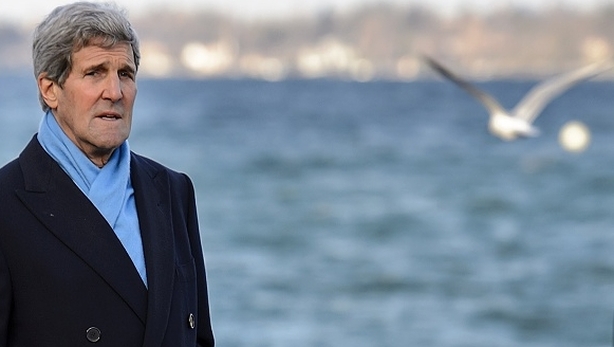The United States made some progress in talks with Iran on its nuclear programme.
A senior US official said it had managed to "sharpen up some of the tough issues", but both sides said much remained to be done.
Negotiators from Iran and six major powers agreed to resume talks next Monday at a venue to be decided, the official said.
It came after US Secretary of State John Kerry and Foreign Minister Mohammad Javad Zarif held two-day talks in Geneva.
 US Secretary of State John Kerry walks along the promenade of Lake Geneva upon his arrival in Geneva today
US Secretary of State John Kerry walks along the promenade of Lake Geneva upon his arrival in Geneva today
Mr Zarif told Iran's Fars news agency: "We had serious talks with the P5+1 representatives and especially with the Americans in the past three days ... But still there is a long way to reach a final agreement."
An Iranian source told Reuters that Mr Zarif and Mr Kerry would return to the Swiss city to launch the next round on 2 March.
The P5+1 group, the United States, Russia, China, Britain, France and Germany, are seeking to negotiate an agreement with Tehran, to address concerns that Iran is seeking nuclear weapons technology, something it denies.
"These were very serious, useful and constructive discussions. We have made some progress but we still have a long way to go.
"We did very much sharpen up some of the tough issues so we can work to resolution," the senior US administration official told reporters.
Negotiators hope to meet a self-imposed 31 March deadline for an initial political deal.
However, the US official said that would not "make us rush to an agreement that does not fulfil the objectives that the president has given to us."
The aim of ensuring Iran does not acquire a nuclear weapon "has to be met and that is not about the deadline, it is about the purpose", the official said.
Iran, which denies having any nuclear weapons programme, hopes a deal will bring relief from international sanctions.
Diplomats say the six major powers aim for a deal lasting at least ten years under which Iran would need at least one year to produce enough highly enriched uranium for a single nuclear bomb, the so-called "breakout" capacity.

